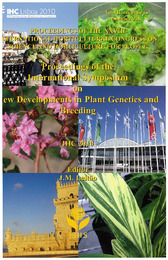Por favor, use este identificador para citar o enlazar este ítem:
https://hdl.handle.net/11000/34825Registro completo de metadatos
| Campo DC | Valor | Lengua/Idioma |
|---|---|---|
| dc.contributor.author | García Martínez, Santiago | - |
| dc.contributor.author | Giménez, M. | - |
| dc.contributor.author | Alonso Sanchis, Aránzazu | - |
| dc.contributor.author | Grau Sánchez, Adrián | - |
| dc.contributor.author | Valero Roche, Manuel | - |
| dc.contributor.author | Parra, J. | - |
| dc.contributor.author | Aguilar, A. | - |
| dc.contributor.author | Gamayo, J.D. | - |
| dc.contributor.author | Ruiz Martínez, Juan José | - |
| dc.contributor.other | Departamentos de la UMH::Biología Aplicada | es_ES |
| dc.date.accessioned | 2025-01-17T10:08:07Z | - |
| dc.date.available | 2025-01-17T10:08:07Z | - |
| dc.date.created | 2012-06 | - |
| dc.identifier.isbn | 978 90 6605 398 4 | - |
| dc.identifier.issn | 0567-7572 | - |
| dc.identifier.uri | https://hdl.handle.net/11000/34825 | - |
| dc.description.abstract | We are conducting a breeding program to introgress resistance to several viral diseases (ToMV, TSWV, and TYLCV, the most relevant in south-eastern Spain) into Spanish traditional tomato cultivars. In order to determine the possible negative effect of the introduction of TYLCV resistance, 70 F2 plants from the selfing of an advanced breeding line of the 'Muchamiel' cultivar, homozygous for the resistance alleles Tm-2a, Sw-5, and heterozygous for Ty-1 were evaluated for yield. Plants were grown under greenhouse in an autumn-winter cycle, at the Estación Experimental Agraria de Elche (IVIA), Elche (Alicante). Yields were relatively high for a traditional variety, since fruit weight was 5.2 kg/plant. The Aps-F2 marker, linked to the Ty-1 gene was used to confirm that the genotypes in the F2 population followed the expected ratios (¼:½:¼). Plants homozygous for the TYLCV resistance gene (genotype Ty-l!Ty-1) showed on average a 33% yield decrease with respect to the susceptible plants (genotype ty-l/ty-1), while the heterozygous plants (genotype Ty- 1/ty-l) experimented only a 13% yield decrease. In a previous field experiment conducted under open air, in a different growing cycle (spring-winter) and in a lower yield environment (2.4 kg of fruit weight per plant), the percentages of yield reductions, 31 % for the resistant homozygote and 8 for the heterozygote, were very similar to those determined in the present experiment | es_ES |
| dc.format | application/pdf | es_ES |
| dc.format.extent | 6 | es_ES |
| dc.language.iso | eng | es_ES |
| dc.publisher | International Society for Horticultural Science | es_ES |
| dc.relation.ispartof | Proceedings of the XXVIII International Horticultural Congress on Science and Horticulture for People. (IHC2010): III International Symposium on Plant Genetic Resources | es_ES |
| dc.relation.ispartofseries | Acta Horticulturae | es_ES |
| dc.relation.ispartofseries | 935 | es_ES |
| dc.rights | info:eu-repo/semantics/openAccess | es_ES |
| dc.rights | Attribution-NonCommercial-NoDerivatives 4.0 Internacional | * |
| dc.rights.uri | http://creativecommons.org/licenses/by-nc-nd/4.0/ | * |
| dc.subject | Ty-1 | es_ES |
| dc.subject | TYLC (Tomato yellow leafcurl virus) | es_ES |
| dc.subject | Greenhouse | es_ES |
| dc.subject | Open air | es_ES |
| dc.title | Similar yield reductions under different growing conditions caused by the introgression of genetic resistance to TYLCV into traditional tomato cultivars | es_ES |
| dc.type | info:eu-repo/semantics/article | es_ES |

Ver/Abrir:
AH-Similar yield reductions under different growing conditions caused....pdf
1,15 MB
Adobe PDF
Compartir:
 La licencia se describe como: Atribución-NonComercial-NoDerivada 4.0 Internacional.
La licencia se describe como: Atribución-NonComercial-NoDerivada 4.0 Internacional.
.png)